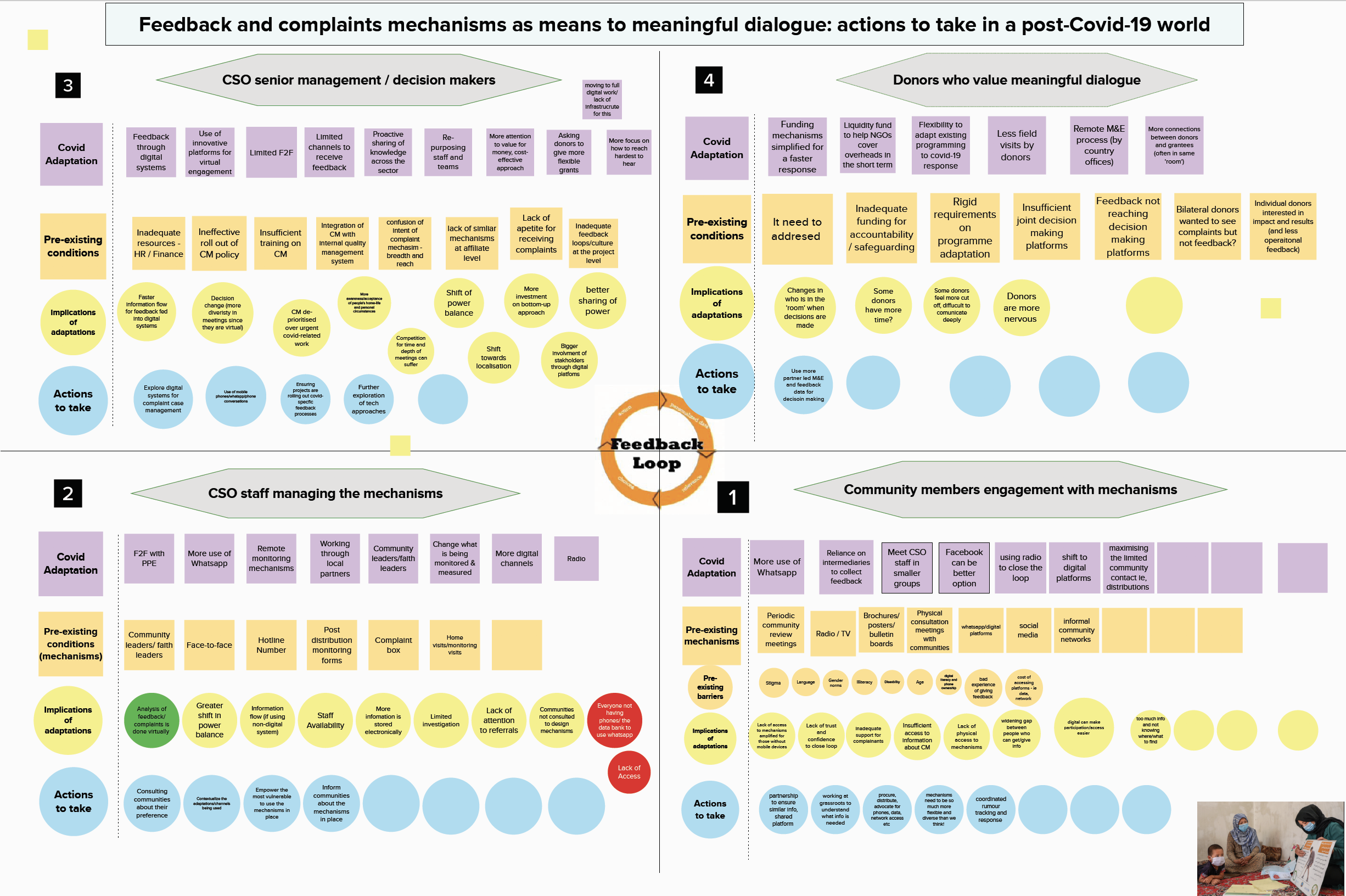CHS Commitments 4 & 5 – adapting feedback and complaints mechanisms: looking beyond the covid-19 pandemic
Following on from a Global CHS Exchange workshop on digital complaint mechanisms, CHS Alliance member World Vision programme staff and practitioner-researcher Mayumi Fuchi share their reflections on adapting the feedback loop in the time of covid
The promise of coronavirus vaccines means an endpoint to the covid-19 pandemic is appearing on the horizon. It will take much time and effort, but at least we know better where we stand – around the mid-point of this dangerous and disruptive period. Here, we reflect how we, Civil Society Organisations (CSOs), have adapted, the implications of these changes, and what we now need to do to set a course for these mechanisms to enable more meaningful dialogue and effective programming post-pandemic.
Key takeaways from a recent Accountable Now workshop brainstorming ideas across the ‘feedback loop’ include:
- CSO staff managing feedback and complaints mechanisms have had to increasingly rely on digital channels for feedback and complaints, and the challenge will be continuing to harness the potential of technology while at the same time restoring face-to-face opportunities for communities. Adapting to the pandemic has reinforced us to recommit to consulting with communities on how they want to receive information from CSOs, and provide feedback. While Covid-19 and future disruptions may create constraints, our starting point must always be the preference of communities rather than what is assumed by, or most convenient for, CSOs.
- CSO senior management/decision-makers have been presented with new opportunities to strengthen the inclusion of community member perspectives. The pre-covid reliance on face-to-face meetings would often limit who would be ‘in the room’ when strategic programmatic decisions were being made. Despite the limited opportunities to physically visit projects, CSO decision-makers have been able to draw on feedback through digital platforms to guide decisions. For example, World Vision was able to aggregate feedback trends within countries and across all our country-level responses to better target its support. However, covid-19 has also brought into sharper focus the digital divide and the need to invest resources to enable marginalised community members to access feedback mechanisms and participate in meaningful dialogue.
- Donors who value meaningful dialogue have also been presented with opportunities to accelerate adaptable implementations through local partners and give more space for localisation. Many have offered greater flexibility to enable grantees to quickly respond to the pandemic. Being able to access aggregated feedback and complaints has the potential to enable them to understand the effectiveness, manage the risks and explore untapped innovations, in the programmes they fund.

The virtual, work in progress, flipchart
The process of sharing our adaptations reminded us that we often tend to develop our own systems and mechanisms and that we need to continue to share approaches and harmonize whenever we are engaging overlapping constituencies. One of the silver linings of facing a global crisis is that many CSOs and alliances have now developed information sharing portals on covid-19 responses. CHS Alliance guidance offers resources to support applying the CHS in the time of pandemic. New research into how covid-19 has affected complaint, feedback, and response mechanisms from CHS Alliance and Erasmus University’s International Institute for Social Studies also offers insight into how organisations are meeting the sudden changes of 2020:
This is an edited version of a blog that first appeared on Accountable Now’s website.
